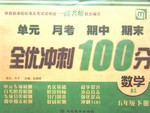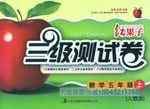题目内容
阅读下列短文,掌握其大意,然后从1-25各题所给的四个选项中,选出一个最佳答案
There is a small island, which is part of New Zealand, named Boarland.It was named Boarland because a lot of boars, large wild pigs, live on the island.
These boars 1 to be a big problem.They often ran 2 the village and 3 farms.Sometimes they attacked people.
Finally, the government sent a letter to a famous 4 , Peter Thomassen.The government said that they would 5 $10, 000 if he could 6 the boars.
Thomassen 7 the offer and came to Boarland the following week.He said that he would solve the problem of the boars within two 8 .He didn't carry a gun with him.He spent the first whole week 9 watching the boars very carefully.
After that he made a 10 that the boars liked to eat a special kind of corn.They seemed to prefer eating the corn 11 all other foods.During the second week Thomassen got several large bags of the corn and carried them into the forest.He put several pieces of corn in an open field 12 the boars lived.At first 13 of the boars would eat the corn.However, after a few days, some of the 14 boars began to go near it.A few of them ran to the corn, ate a few pieces and then ran back into the forest. 15 more and more boars began to eat the corn.After a month most of the boars were eating the food Thomassen had 16 .Only a few were still 17 the village farms.
At the end of five weeks Thomassen went to the village and asked the people for 18 to build a fence.They wanted to go with him, but he told them not to 19 him.
During the sixth week, he started to build a very 20 fence around the open field.Of course, each day he brought more corn to the field.The pigs didn't seem to 21 that he was building a fence and they were happy because every day they received their favorite food 22 having to work for it.
Little by little the fence became higher and higher, and then one day he built a 23 and slowly closed it.In the middle of the eighth week, he went to tell the villagers he had solved the problem.This time the villagers followed him to the woods.They saw a fence one metre high, and the pigs were 24 , and they didn't seem to be 25 at all.
Thomassen explained,“Please feed them some corn every day and they'll never disturb you again.”He reveived his money because he had solved the problem.
(1)A.used | B.hoped | C.tried | D.intended | [ ] |
|
(2)A.through |
B.away |
C.across |
D.out of |
[ ] |
|
(3)A.burnt |
B.destroyed |
C.attacked |
D.stopped |
[ ] |
|
(4)A.killer |
B.leader |
C.scientist |
D.hunter |
[ ] |
|
(5)A.cost |
B.pay |
C.give |
D.leave |
[ ] |
|
(6)A.kill |
B.catch |
C.give up |
D.get rid of |
[ ] |
|
(7)A.accepted |
B.received |
C.made |
D.helped |
[ ] |
|
(8)A.weeks |
B.days |
C.months |
D.years |
[ ] |
|
(9)A.just |
B.almost |
C.even |
D.ever |
[ ] |
|
(10)A.decision |
B.discovery |
C.plan |
D.fact |
[ ] |
|
(11)A.to |
B.than |
C.for |
D.except |
[ ] |
|
(12)A.which |
B.where |
C.that |
D.what |
[ ] |
|
(13)A.some |
B.all |
C.none |
D.several |
[ ] |
|
(14)A.small |
B.young |
C.old |
D.big |
[ ] |
(15)A.little by little | B.Now and then |
[ ] |
||
|
C.From time to time | D.Here and there | |||
|
(16)A.eaten |
B.cooked |
C.planted |
D.prepared |
[ ] |
|
(17)A.getting |
B.entering |
C.attacking |
D.preferring |
[ ] |
|
(18)A.wood |
B.wires |
C.help |
D.materials |
[ ] |
|
(19)A.follow |
B.see |
C.help |
D.care |
[ ] |
|
(20)A.high |
B.low |
C.strong |
D.long |
[ ] |
|
(21)A.know |
B.recognize |
C.notice |
D.see |
[ ] |
|
(22)A.without |
B.with |
C.for |
D.because of |
[ ] |
|
(23)A.gate |
B.fence |
C.window |
D.village |
[ ] |
|
(24)A.eating |
B.inside |
C.wild |
D.everywhere |
[ ] |
|
(25)A.happy |
B.easy |
C.animals |
D.wild |
[ ] |

 全优冲刺100分系列答案
全优冲刺100分系列答案 英才点津系列答案
英才点津系列答案 红果子三级测试卷系列答案
红果子三级测试卷系列答案
 D. boards
D. boards